The Payroll Blog
News, tips, and advice for small business owners
Small Business HR Leader Survey Cites HR Software & Technology as Boost to Company Efficiency
A survey of 1,000 small business HR professionals from across the country reveals tracking staff hours and researching / trying to keep up with the latest federal, state, and local regulations top the list for their most time-consuming tasks.

The link between better business outcomes and a more engaged, happier, and healthier workforce is increasingly evident according to findings from the sixth annual Pulse of HR Report. The survey of 1,000 HR leaders highlights the top HR-related stressors for U.S.-based small businesses and details the lingering impact of the COVID-19 pandemic on employee relations.
HR leaders who work for companies with 49 or fewer employees identify chasing down employee time worked / hours and researching / trying to keep up with the latest federal, state, and local regulations as the top two most time-consuming tasks they face.
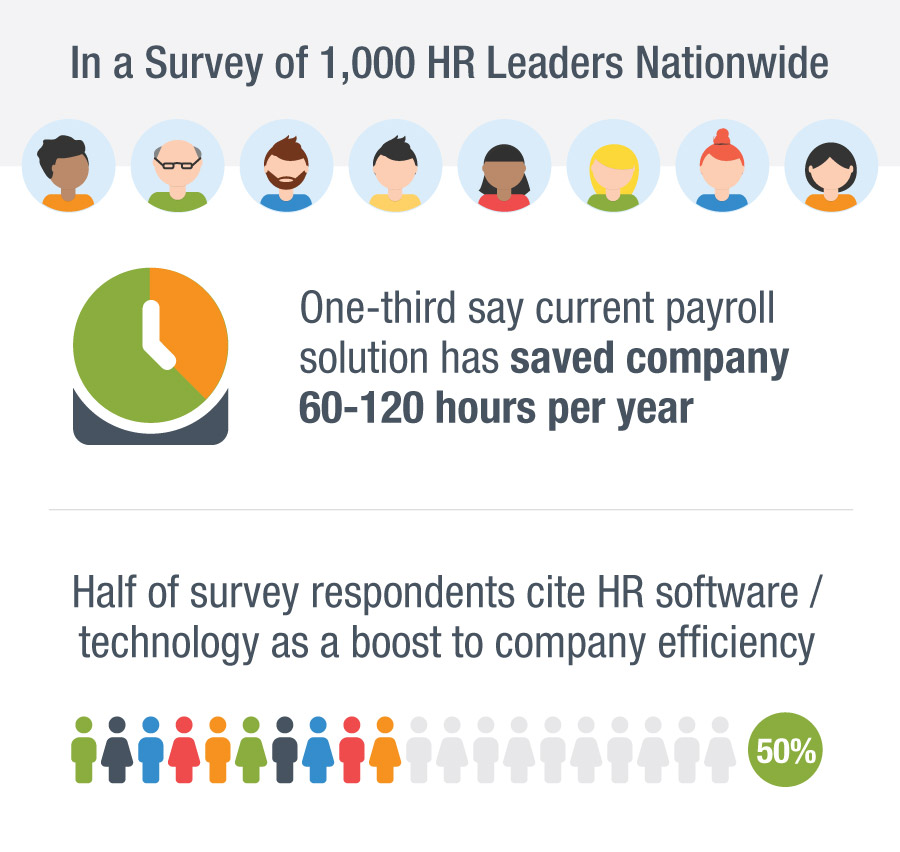
When asked to estimate time savings provided by their current payroll system, more than one-third of small business HR leaders report saving 11 to more than 20 hours each month:
- chasing down and correcting payroll errors
- preparing payroll and checks
- preparing tax filings
- creating and analyzing business reports
- entering information into multiple systems
- by giving employees self-service capabilities
“Half of survey respondents cite HR software / technology as a boost to company efficiency. One-third say changing to their current payroll solution or technology has saved their company 60-120 hours per year preparing payroll and fixing payroll issues,” said Jason Copeland, SurePayroll General Manager (interim). “The survey findings demonstrate the importance of working with a knowledgeable, trusted partner who understands their needs and supports their continued success every step of the way.”
Employee Recruitment, Retention Top Pain Points
The survey notes finding, attracting, and retaining talent a top concern for small businesses. Survey respondents cite third-party job sites (32%), employee referrals (30%) and posting openings on industry-specific sites / platforms (30%) as most helpful to sourcing new talent.
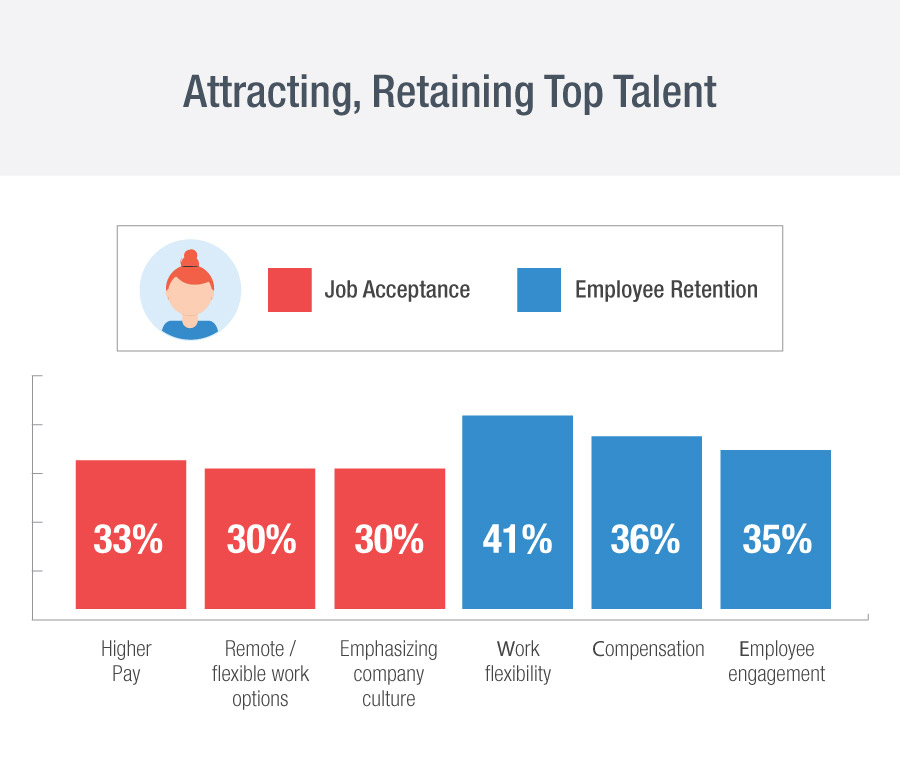
They cite offering higher pay (33%), remote / flexible work options (30%), and emphasizing company culture (30%) as among the best ways to boost job acceptance. When it comes to employee retention, survey respondents cite increasing work flexibility (41%) and compensation (36%).
When it comes to retaining current employees, HR leaders rank increasing work flexibility like variable hours, remote work and job sharing (39%) tops, followed by employee engagement (35%) and increasing compensation (32%).
The Power of Employee Engagement
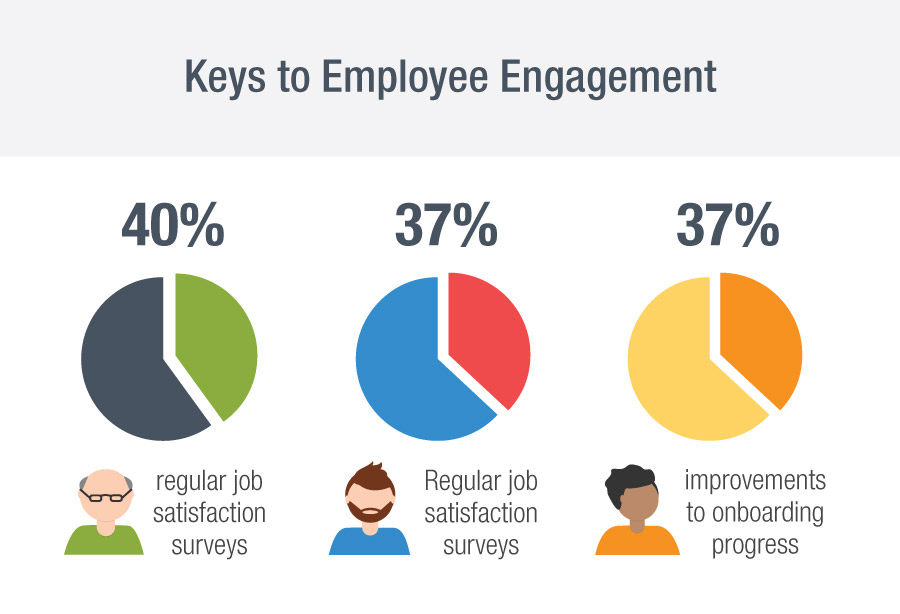
Employee engagement is directly linked to customer satisfaction, productivity, and employee retention. The Pulse of HR Survey shows HR leaders cite regular job satisfaction surveys (40%), career development and advancement communication (37%) and improvements to the onboarding progress (37%) the most popular tactics to boost employee engagement.
Small Businesses Adapt to Hybrid, Remote Work
The survey indicates small business owners have quickly adapted to the call from employees and candidates when it comes to hybrid or remote work arrangements. Thirty-eight percent now offer hybrid work arrangements for all employees and 47% for some / select employees, compared to roughly one-third and 42%, respectively, pre-pandemic. HR leaders acknowledge the shift, noting the advantages distinctly outweigh the disadvantages.
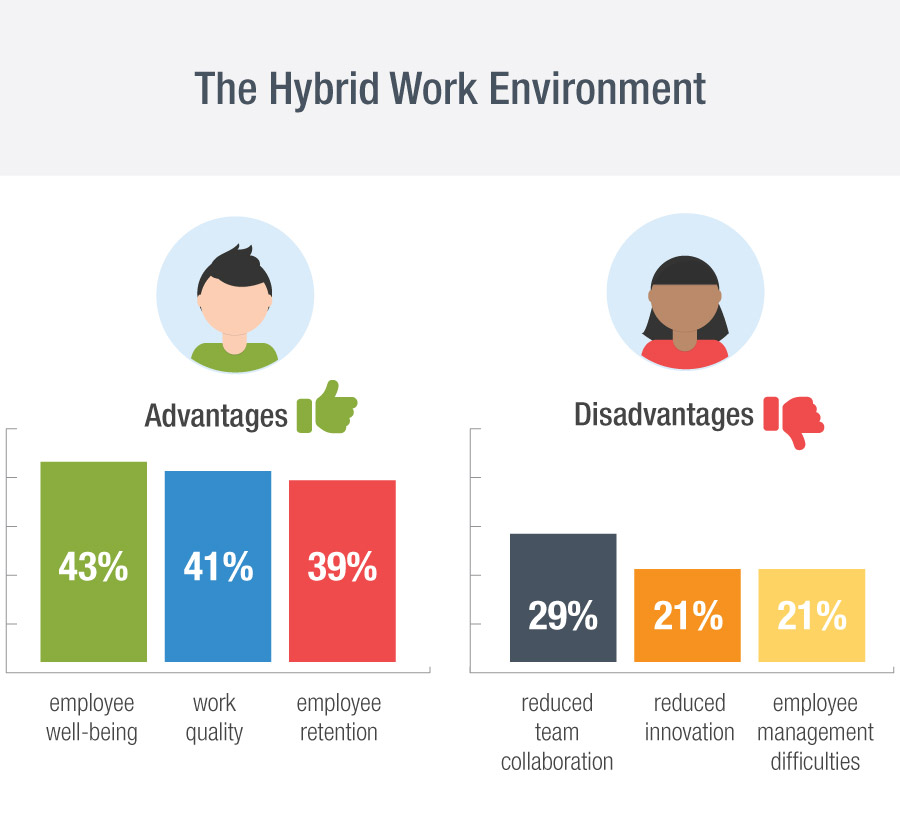
Small businesses that offer hybrid work arrangements report improvements in employee well-being, including emotional / mental health, physical or financial well-being, (43%), work quality (41%) and employee retention (39%). To a lesser extent, HR leaders also report hybrid working arrangement disadvantages, including reduced team collaboration (29%) and innovation (21%), and increased effort to manage remote employees (21%). The HR leaders also raise concerns regarding employee training and skill building, with almost half (47%) reporting they’ve increased technology to support goal setting, career advancement, training and skill building.
Employee Burnout Concerns Increase Post-Pandemic
Sixty-two percent of small business HR leaders express concern over employee burnout, up from 52% prior to the COVID-19 pandemic. To counter burnout, HR leaders report small business owners increasingly offer flexible work schedules (39%), tactics to make work feel manageable (30%) and emphasize work / life balance as part of company culture (29%).
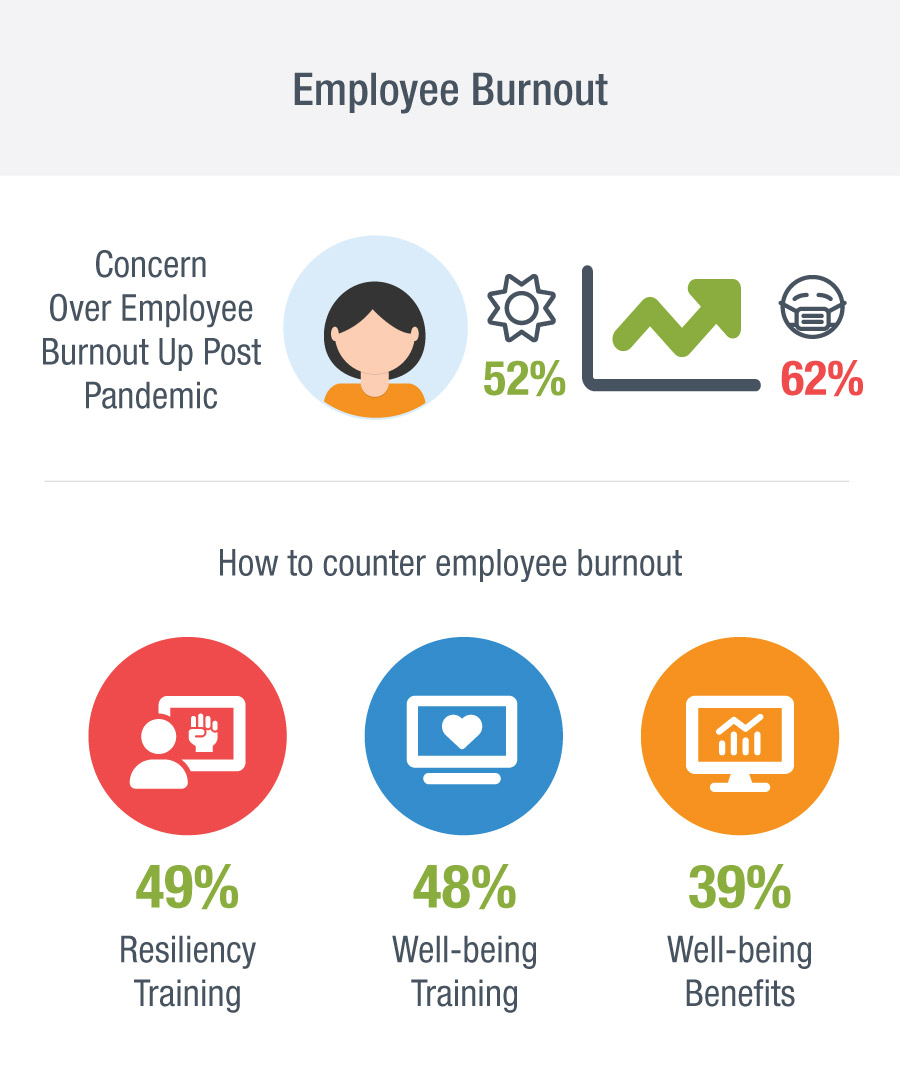
Small business owners are working to counter employee burnout with programs that support employee emotional, mental, physical, and financial well-being. HR leaders report the programs include burnout prevention / coping (49%), well-being training (48%) and including / increasing well-being benefits (39%).
The Pulse of HR Report was conducted between April 15 and May 6, 2022.
Source: 2022 Paychex Pulse of HR Survey
View Our Plans and Pricing
Small Business Is Our Business.
This website contains articles posted for informational and educational value. SurePayroll is not responsible for information contained within any of these materials. Any opinions expressed within materials are not necessarily the opinion of, or supported by, SurePayroll. The information in these materials should not be considered legal or accounting advice, and it should not substitute for legal, accounting, and other professional advice where the facts and circumstances warrant. If you require legal or accounting advice or need other professional assistance, you should always consult your licensed attorney, accountant or other tax professional to discuss your particular facts, circumstances and business needs.
